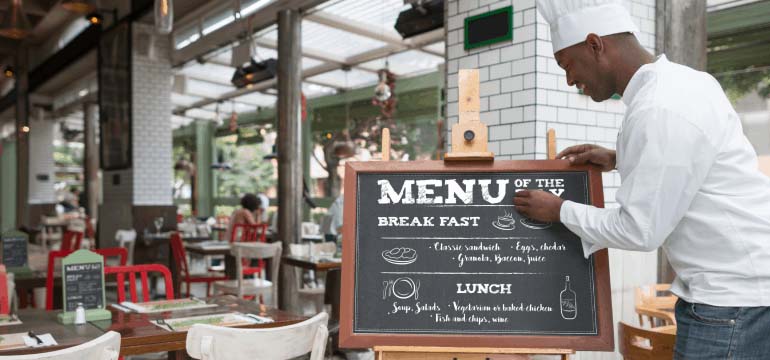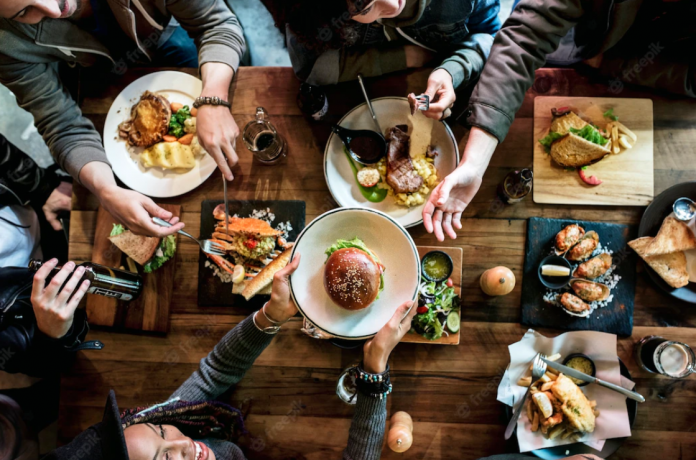You are probably weary of hearing about soaring inflation and not having a proper solution to address your problems. Yet, it is a reality that no restaurateur can escape. While there seems to have been some reprieve in the second half of this year, with the annual inflation rate slowing for a fourth month to 7.7% in October, the figure is still pretty high. The rate of increase in food costs has also come down – 10.9% from the previous 11.2% – and yet the fact remains that prices are still going up. Despite the dip in the latest inflation percentages, Trading Economics cautions that, “Figures continue to point to strong inflationary pressures and a broad price increase across the economy.”
It is natural to be worried by the forecasts, after all, high inflation means higher costs. It is not practical to simply keep raising your prices to combat the effects of inflation. Regular price hikes are not looked upon kindly by customers. A Revenue Management Solutions report showed that, as early as March this year, 63% of diners complained that restaurant prices were too high. With customers being unhappy about having to fork out more each time they visit, you need to find other ways to navigate menu pricing. Here are five tips that will help you achieve that delicate balance between covering costs and keeping your customers happy.

- Reduce the range of offeringsHaving a wide range of items on your menu was an effective pull factor for customers back in the day when things were not so pricey. Navigating menu pricing in the current context requires you to think about your spending on ingredients versus what you sell. By removing those items that are less in demand you can reduce food wastage leading to a huge saving. You can also order ingredients in bulk, bringing down your cost. The math is simple: with your expenses stabilized you can afford to keep your menu prices as is.
- Serve lessThe two biggest contributors to food wastage in the US are supermarkets and restaurants. What this means is that you are probably serving way too much in each portion. Reducing portion sizes will help you navigate menu prices by controlling your expenditure. Don’t make it too drastic though – the last thing you need is for your customers to feel cheated. Play it safe and inform customers that you will be cutting down on quantity. If you word it well and offer a sound explanation, they are sure to understand.
- Expand your supply chainA major force in driving inflation up has been supply chain disruptions. Within this context, the proverb, ‘ Don’t put all your eggs in one basket’ is extremely pertinent to the F&B sector. Maintaining reasonable menu prices requires reliable vendors. Build a network of suppliers so that you have options when vendors face difficulty or hike up their prices unreasonably. Having many suppliers also puts you in a stronger position to negotiate better rates.
- Use cheaper ingredientsFood costs account for 35% of a restaurant’s total costs. Take a close look at what you pay for your ingredients and look for cheaper alternatives. Buying locally will save on transport, while buying in bulk is more economical. Seasonal ingredients also tend to be cheaper so consider adding specials into your menu. The goal is to control your spending so that you can keep your menu prices steady.
- Capitalize on data analyticsUnderstanding the sales patterns of your restaurant is vital to navigating menu pricing. Check your data analytics and get a handle on what sells and what is overlooked. Look at the possibility of making a slight increment to the price of your bestsellers. Consider what you want to do with the less popular items – can you promote them or would it be better to simply scrap them? Find the most profitable items on your menu and then figure out how to push these. You can make your menu a lot more profitable by utilizing data analytics.
Given how expensive basics are these days, customers are trimming the extras and, sadly, dining out is one of the areas where they are tightening their purse strings. If you want your customers to keep coming back, you need to make sure that your food and drink are affordable. Try out the menu pricing strategies above and keep your restaurant on the path of profitability as you head into the new year.
Published By: Applova




